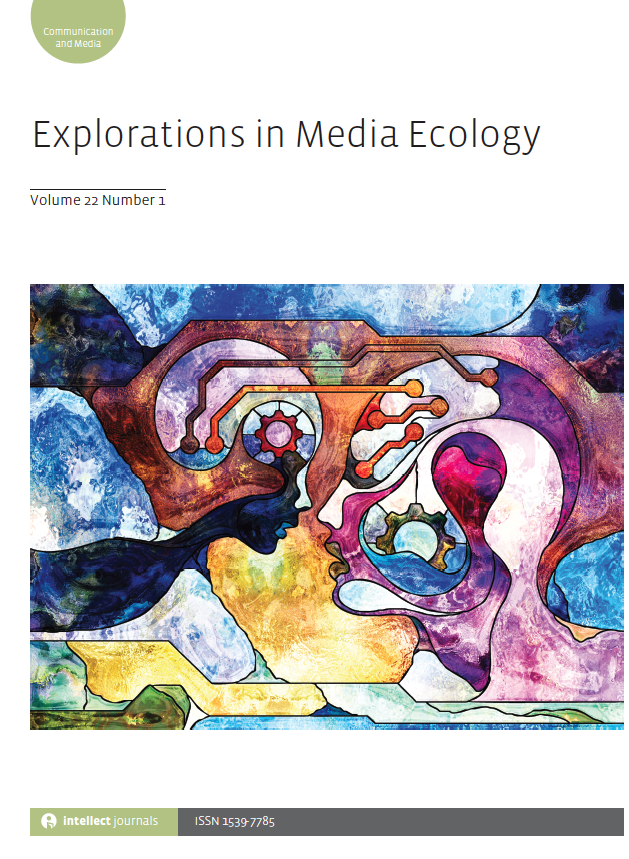- Home
- A-Z Publications
- Explorations in Media Ecology
- Previous Issues
- Volume 5, Issue 4, 2006
Explorations in Media Ecology - Volume 5, Issue 4, 2006
Volume 5, Issue 4, 2006
-
-
The Machine Question: Ethics, Alterity, and Technology
More LessAbstractEthics, especially communication ethics, is customarily understood as being concerned with questions of responsibility for and in the face of an other with whom we interact and exchange information. This Other is more often than not conceived of as another human being. This anthropocentric assumption has been significantly challenged by computer technology, intelligent systems, virtual realities, and cybernetics, all of which introduce the possibility of communicative others that are and remain otherwise. This article investigates the unique ethical challenges, complications, and possibilities introduced by these other forms of otherness that populate and are encountered in the new environment of cyberspace.
-
-
-
Postcyborg Ethics: A New Way to Speak of Technology
More LessAbstractThe cyborg has moved from a science fiction icon to a tool for discussing the emerging posthuman, the proclaimed next stage of human evolution. The claim that cyborgs now live among us is based on our unquestioning appropriation of technologies into the human life sphere. This raises questions about the role of technology and what it means to be human. This article outlines current posthuman discussions of technology through exploring Steve Mann’s discussion of postcyborg ethics. Mann describes different ages of human interaction with technology to highlight issues of how technology affects personhood and privacy. Through reflecting on his ideas about technology, a call is made for “prophetic technorealism,” a critical approach to framing humanity and technological culture.
-
-
-
Revisaging the Face: Levinas and the Limits of Online Communication
More LessAbstractCurrent approaches examining aggression, or flaming, in online communication often fail to recognize the unique characteristics of communication conducted in virtual environments. Virtual environments inherently complicate communication because of the fragmentation of identity and space that persists within them. This article suggests that the fragmentation of identity results in an ambiguity of self and agency, and that the ontological assumptions on which modern ethical paradigms are based are ill-suited to online communication. This article considers the thought of Emmanuel Levinas and his attempt to preserve the ambiguity of alterity as an alternative to methods that seek to totalize alterity.
-
-
-
Anti-Environments in the Classroom
More LessAbstractThis article discusses ways a teacher can create an anti-environment in the classroom without alienating students.
-
-
-
Reviews
More LessBy Corey AntonAbstractKaha Waite, C. Mediation and the Communication Matrix. New York: Peter Lang Publishers, 2003. 193 pp. Paper $24.95, ISBN 0-820-46177-6.
-
Volumes & issues
-
Volume 22 (2023)
-
Volume 21 (2022)
-
Volume 20 (2021)
-
Volume 19 (2020)
-
Volume 18 (2019)
-
Volume 17 (2018)
-
Volume 16 (2017)
-
Volume 15 (2016)
-
Volume 14 (2015)
-
Volume 13 (2014)
-
Volume 12 (2013)
-
Volume 11 (2012)
-
Volume 10 (2011)
-
Volume 9 (2010)
-
Volume 8 (2009)
-
Volume 7 (2008)
-
Volume 6 (2007)
-
Volume 5 (2006)
-
Volume 4 (2005)
-
Volume 3 (2004)
-
Volume 2 (2003)
-
Volume 1 (2002)
Most Read This Month


